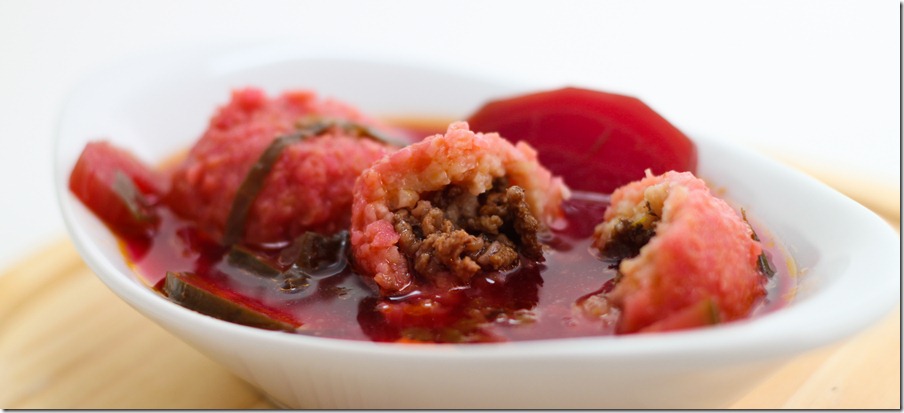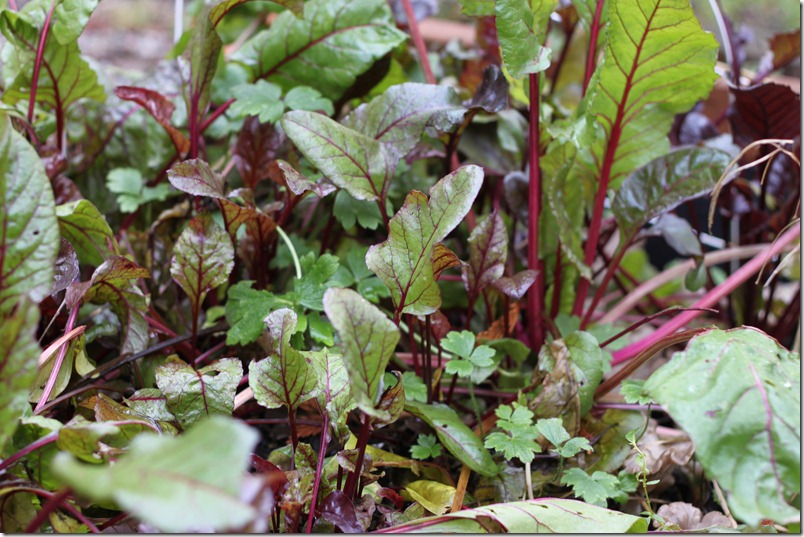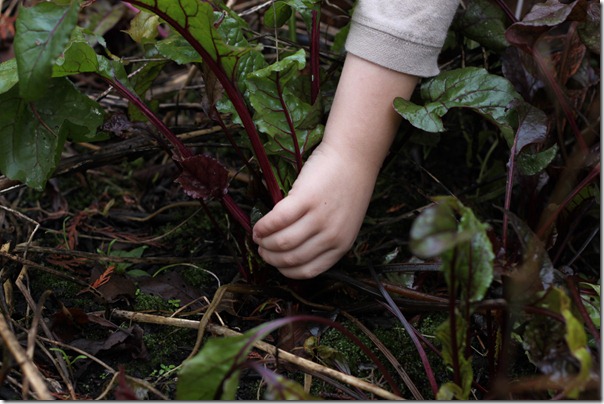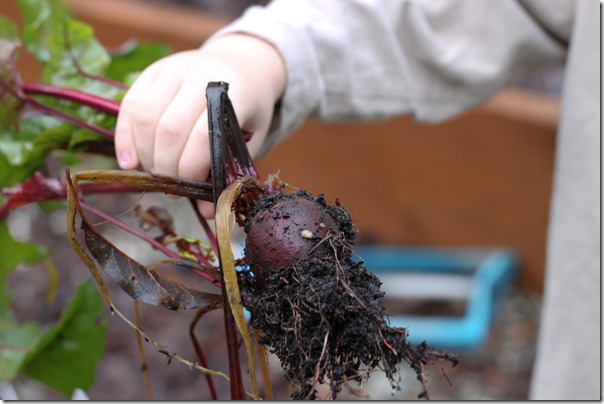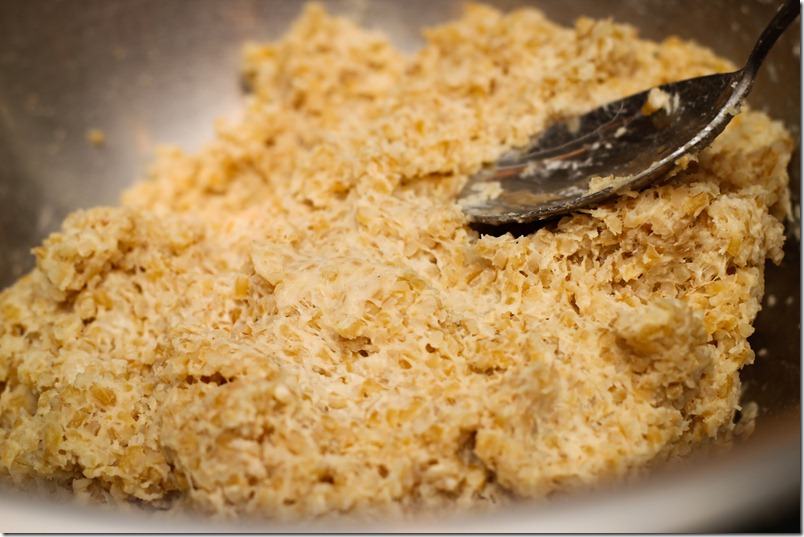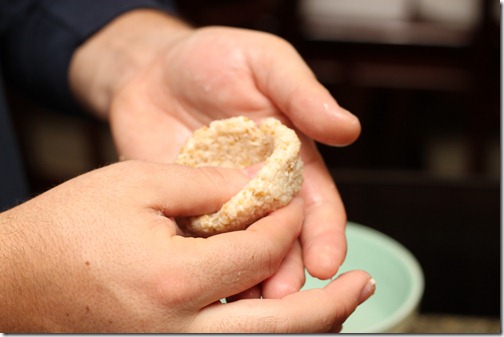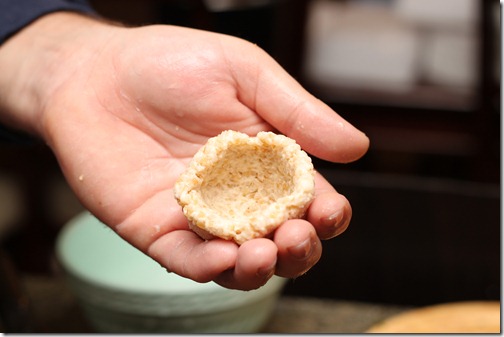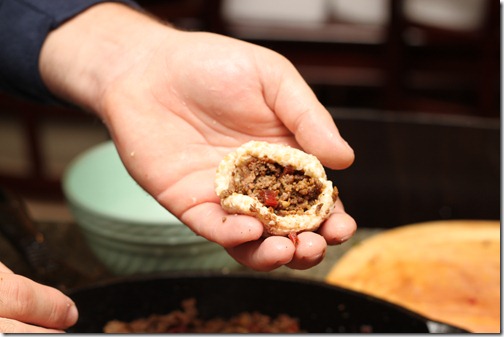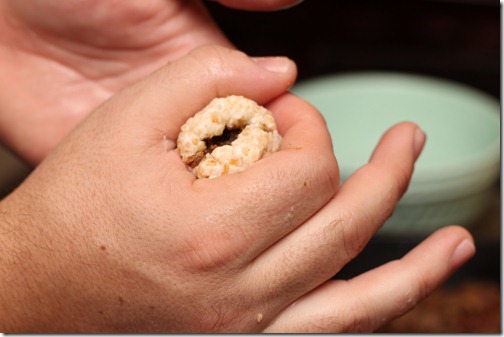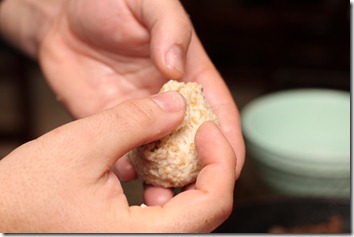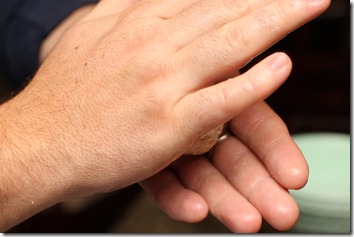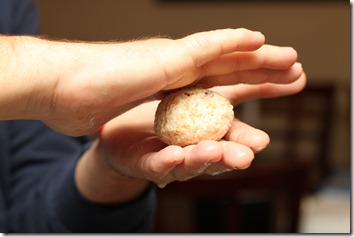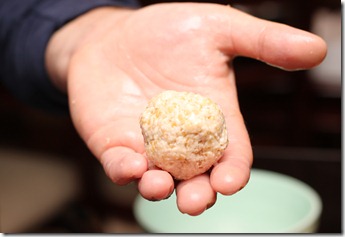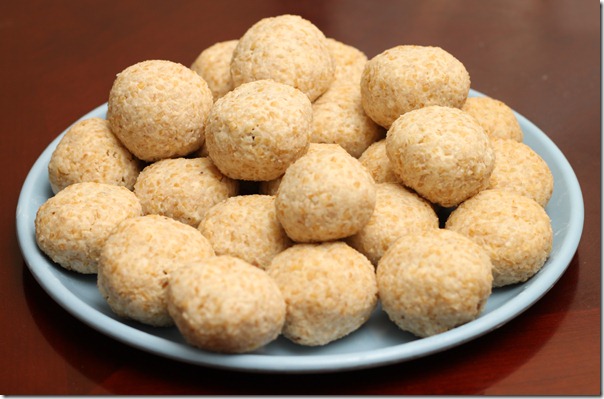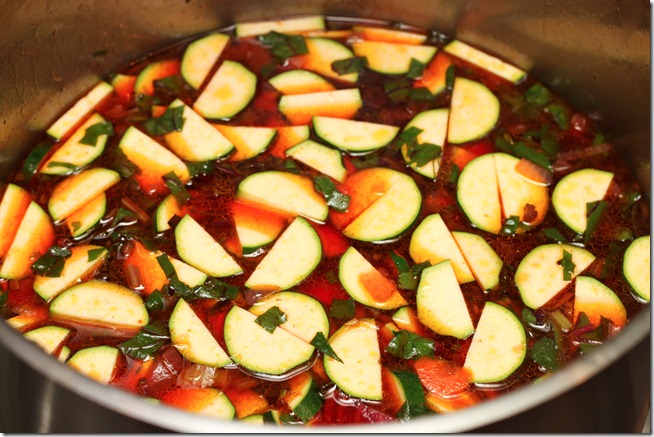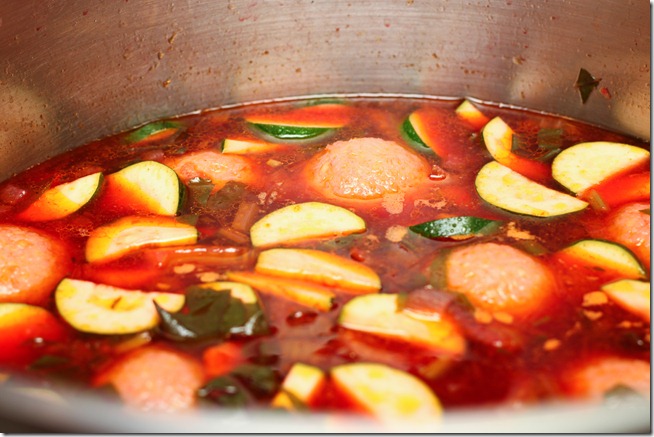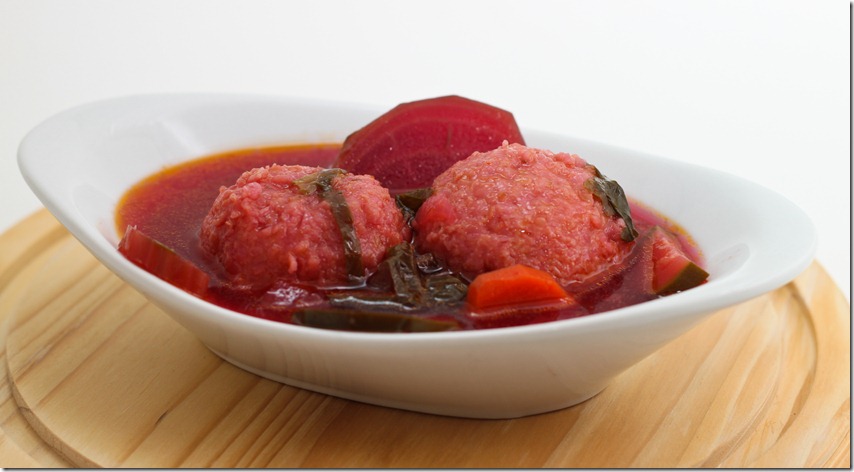I was recently attending a Hanukkah celebration at the home of some friends of mine and tried the most wonderful soup, red kubbeh soup. It is a Kurdish/Iraqi soup with beets and meat filled dumplings that mixes sweet and sour and felt new and different (at least to me). I wanted to try making it myself! I started to look around on the internet for recipes (apparently, I’m not the only one who was amazed, as seen in this tablemag.com article).
After consulting with my friends who made the soup (Yossi, thanks again!) and digging around online, I settled on this recipe (plus some changes and tips from my friend) which is a hoot to read, even if I only understood half of the inside Jewish jokes.
Now, I have a secret to share…I love beets! I know that a lot of people either hate beets or have never really tried them. They have a pretty heavy, earthy, flavor that is both sweet and almost metallic. But beets are also very tasty and SO GOOD FOR YOU! People normally eat (those who eat beets, that is) just the root bulbs (similar to a carrot) but I have always also eaten the greens, which give you a double whammy of being both a red vegetable and a dark green one.
Eat more beets and beet greens
Ok, I’m off my soap box. Since I was in the mood for making this red kubbeh soup, it was also convenient that I only have two harvestable things in my garden right now, beets and carrots (as seen below being picked by my cute son).
The other awesome part about this soup, of course, is the kubbeh. Kubbeh are a simple unassuming bulgur wheat dumpling filled with spiced meat. But dumplings are great, right? I love dumplings from about every culture that I’ve tried and this is no exception. I think that dumplings are doubly good when put into a broth so this is just a big win.
The last thing about this soup that is extra special is the use of citric acid. It makes the soup surprisingly tart which adds a whole new flavor dimension to it. Beets are often eaten in the presence of some acid, usually pickled, which hides a bit of the earthiness and enhances the sweetness, so this soup again, shows a great understanding of how to make beets great.
Again, this soup is not only tasty, but rich in nutrients and vegetables too. Make this soup! (Wait, I’m back on a soap box again, ok, well, on to the recipe.)
Red Kubbeh Soup (adapted from SoulandGone.com)
for the Kubbeh:
1 cup – Bulgur wheat (coarse)
1 cup – Bulgur wheat (fine…I ground a cup of the coarse in my Blendtec for 20 seconds)
1 cup – Semolina flour
1-2 Tbsps. – All purpose flour
1 tsp. – Salt
1.5 lbs – Ground beef
4 cloves – Fresh garlic (minced)
2 tsp. – Cinnamon
1 tsp. – Ground Allspice
1 tsp. – Ground Cumin
1 cup – Swiss Chard stalk (finely diced)
Salt/Pepper
Olive Oil
for the soup:
2 – Large onions (minced)
1 cup – Swiss Chard stalk (finely diced)
1 cup – Beet green stalk (finely diced)
5 – Beets (peeled and sliced into 1/4 inch thick semi circles)
2 – Carrots (peeled and sliced into 1/4 inch thick pieces)
2 – Stalks celery (sliced into 1/4 inch thick pieces)
1 Gallon – Chicken broth (or 1 gallon of water and 4 Tbsp. chicken base)
1 small can – Tomato paste
2 Tbsp. – Sweet paprika
2-5 Tbsp. – Sugar
1-2 Tbsp. – Citric acid (optionally use lemon juice)
1 bunch – Swiss chard (chopped, stalks removed…see above)
1 bunch – Beet greens (chopped, reserved from beets…see above)
2 – Small Zucchini
Salt/Pepper
Olive Oil
To prepare the Kubbeh, start by adding the two cups of bulgur wheat to a large bowl. Fill with water until it is covered by about an inch of water and let sit on the counter for 45 minutes.
In the meantime, add 1-2 Tbsp. olive oil to a large skillet and brown the ground beef until very dry, loose, and well browned. Add the cumin, cinnamon, allspice, and chard stalks and sauté until the chard becomes soft, about 2 minutes. Salt and pepper to taste, then let cool.
After the allotted time, place the bulgur in a strainer and remove any excess water. Return to the bowl and add the semolina, flour, and salt. Mix well and knead lightly until a coarse dough is formed. If the dough seems too sticky, add a little more flour.
Now to form the kubbeh. If you read the original recipe, you’ll understand what I mean when I say “you are a Kurdish grandmother…”
The recipe will make about 20-22 kubbeh. Have a bowl of cold water on hand to dip your hands in often. For each one, take a small ball of dough (about 2 1/2 Tbsp. or the size of a small egg). Roll it around in your hand until smooth then press inside to form a sort of egg’s nest. Remember to try and form the sides of the kubbeh to be as thin as possible (about 1/4 inch thick or less)
If the sides of the nest seem to crack or break, rewet your fingers and press tightly to squeeze them back together, the best you can. Once you’ve created a nest or cup, fill it with the meat mixture. Try and get as much meat in each one as possible. Practice makes perfect. After you add the meat, begin to squeeze the top of the cup while twisting and turning the cup in your hand to shrink the opening of the dumpling until it is almost entirely closed.
Once the dumpling is mostly closed, fold one side of the open edge up and over the other side. I find that it works a lot better than just trying to press the opening’s edges together. Once you get the dumpling closed up, roll it lightly in your hand to give it a nice round shape. The dumplings can then be set aside until needed for the soup, or saved and frozen to be used on a later date.
Ta-dah!
To make the soup, start by heating a large stock pan and adding 2-3 Tbsp. of olive oil. Add the onion and sauté until clear but not browned, about 5 minutes. Add the beet and chard stalks and sauté until soften slightly. Add the beets, carrots, and celery and stir well. Allow to cook for another 5 minutes. Add the broth, tomato paste, and paprika.
Bring to a simmer and let simmer for 20-30 minutes or until the carrots and beets are softened. Add the chard, beet greens, and zucchini.
To season, add salt (about a Tbsp. at a time, stir well, taste, repeat) until it is salty enough. Do the same with the sugar. Finally add the citric acid (a teaspoon at a time). Find the balance that is right for you. I found that I like my soup more tart than others in my household so I added more citric acid to my bowl directly at the table.
Finally, add the kubbeh. Return the soup to a simmer, and cook for 20 minutes.
Now leave the soup to rest for several hours or overnight, to allow the sweetness of the tomato to mellow. Enjoy!
